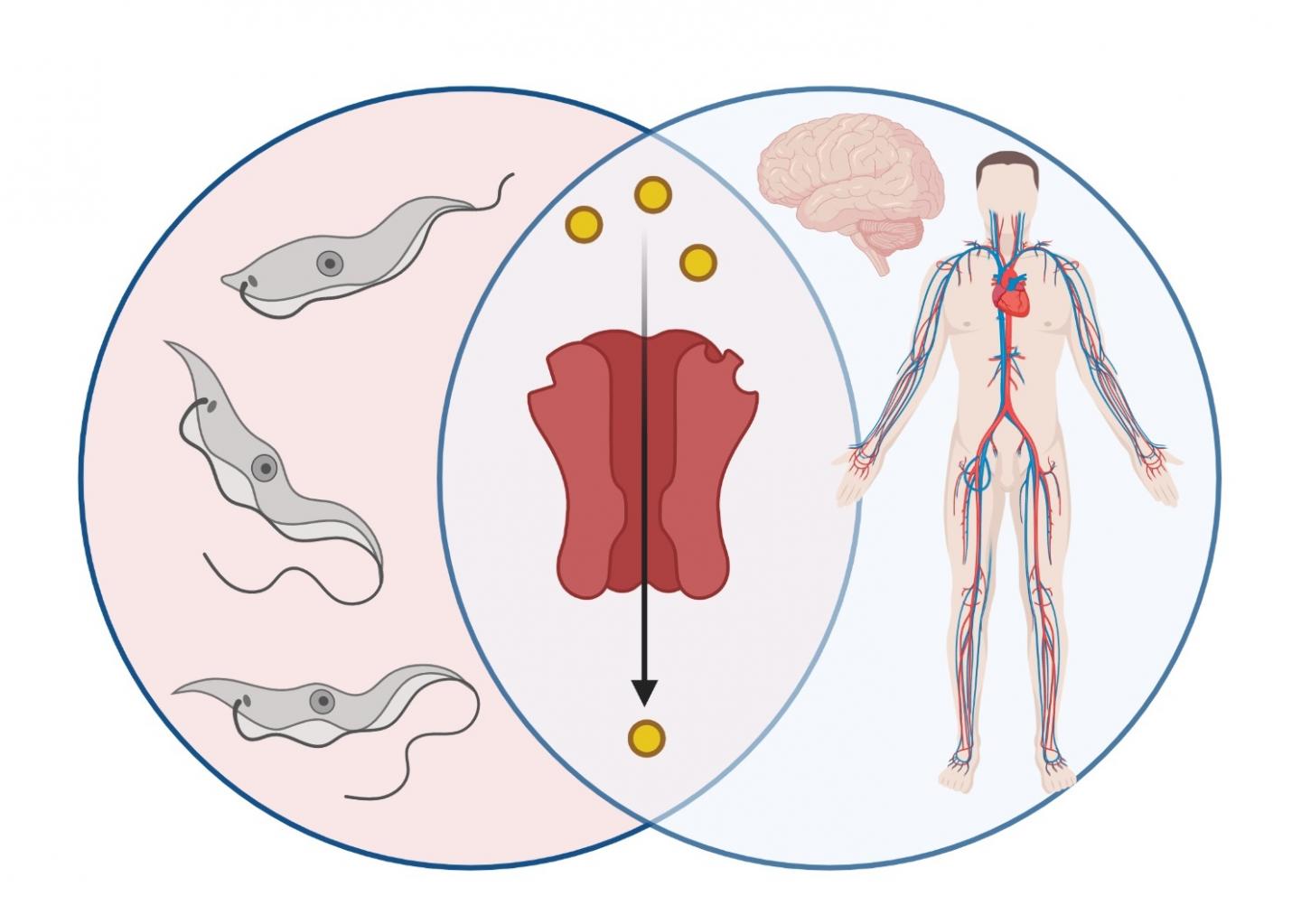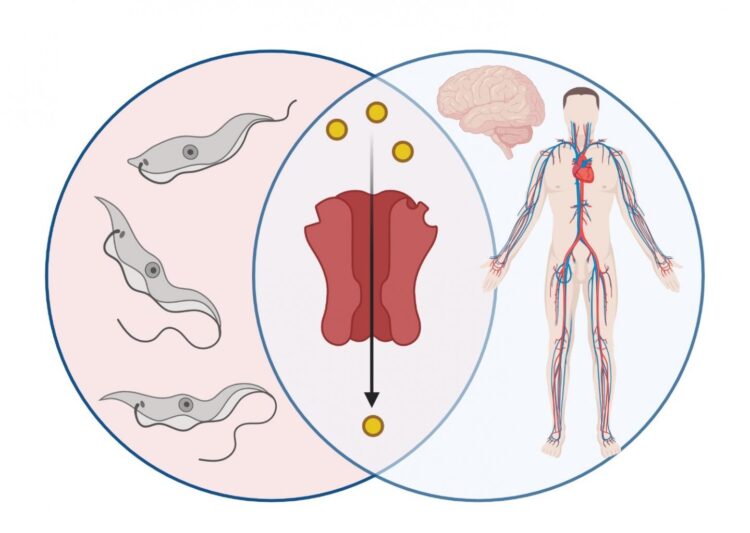Boehringer Ingelheim Foundation promotes innovative research concepts / New research project focuses on neglected tropical diseases

Credit: ill./©: Ute Hellmich (created with BioRender.com)
So-called neglected tropical diseases (NTDs) cause great suffering in some of the world’s poorest countries and can lead also to significant economic losses due to, for example, the infestation of animal herds. NTDs are a group of about 20 different diseases barely recognized in the Western world. However, it is estimated that two billion people worldwide suffer from a neglected tropical disease and many die from it. With this in mind, Professor Ute Hellmich of Johannes Gutenberg University Mainz (JGU) has launched a new research project investigating the role played by ion channels in parasites. Some of these can cause an NTD, such as African sleeping sickness and Chagas disease. Hellmich’s work is being funded by an Exploration Grant from the Boehringer Ingelheim Foundation. An Exploration Grant is given to outstanding young scientists working in the fields of biology, chemistry, and medicine to enable them to conduct new lines of research in innovative, high-risk areas.
Linking two fields of research
In her new project, Professor Ute Hellmich is combining two approaches that she has pursued since establishing her laboratory in Mainz. On the one hand, she is studying human calcium ion channels, which play a role in the development of various diseases and immune responses. On the other hand, she has also been looking at the parasite Trypanosoma brucei, which causes African sleeping sickness. “Our aim is to find out if there are similarities or differences between the structures of such ion channels in the parasites and in humans,” said Hellmich. “Finding differences might offer a new target for pharmacological agents.” If a specific structure occurs only in parasites and not in humans, agents could then attack this structure without the risk of serious adverse effects in human patients.
Ion channels are membrane proteins that control the passage of ions into cells or cell organelles. They have a vital function in humans, and certain ion channels are also essential to the survival of parasites in a host. “If we are able to determine the structure of these ion channels and understand how they work, we can compare them with human membrane proteins,” the scientist explained. “In addition to their relevance to medicine, these parasites also have a fascinating biochemistry, which is also not yet fully understood. This is exactly the problem that we address with our approach.”
Boehringer Ingelheim Foundation funding for outstanding junior researchers
Over the next twelve months, the Boehringer Ingelheim Foundation will provide a research grant of about EUR 80,000 for the project. “I am very thankful for this Exploration Grant, which gives us the opportunity to creatively combine two areas of research that have fascinated our group for some time now.” Hellmich points out that diseases such as African sleeping sickness and Chagas affect the poorest of the poor in tropical and subtropical regions. African sleeping sickness, for example, is fatal without treatment and the few drugs available may cause very severe side effects. Chagas disease is the main cause of heart failure in the endemic areas in Latin America. Around 10 million people in total are infected with the pathogen Trypanosoma cruzi, and there is no reason to believe that it cannot cross continental borders in the long term. “Due to climate change, it is quite likely that we will also be encountering more and more tropical diseases in Central Europe in the coming years,” said Hellmich.
The Boehringer Ingelheim Foundation is an independent, non-profit organization committed to the promotion of the medical, biological, chemical, and pharmaceutical sciences. It was established in 1977 by Hubertus Liebrecht (1931-1991), a member of the shareholder family of the Boehringer Ingelheim group of companies. With the Perspectives Program Plus 3 and the Exploration Grants, the foundation supports excellent independent junior group leaders in Germany. With its Exploration Grants, the Boehringer Ingelheim Foundation aims to provide outstanding scientists doing basic research with the opportunity to explore new lines of research at an early stage of their careers. It also endows the internationally renowned Heinrich Wieland Prize as well as awards for up-and-coming scientists. In addition, the Boehringer Ingelheim Foundation is donating a total of EUR 154 million from 2009 to 2027 to Mainz University to finance the scientific operations of the Institute of Molecular Biology (IMB). Since 2013, the foundation has been providing a further EUR 50 million for the development of the life sciences at Johannes Gutenberg University Mainz.
###
Related links:
* https:/
* https:/
Read more:
* https:/
* https:/
* https:/
* https:/
Media Contact
Ute Hellmich
[email protected]
Original Source
https:/





